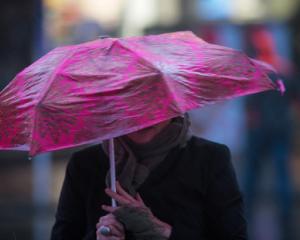For the past week I have been almost exclusively sequestered away at my friend's new cafe.
This is partly because I have so much to do that the most efficient and justifiable method of procrastination seems to be going to support a new business, and partly because the sun has come out again and this cafe is basically a cosy glasshouse.
Something else came up, though, while I was finally walking back to the library to get some study done.
I feel really comfortable at the cafe because I know the people running it, but I feel extra comfortable knowing that they have taken it upon themselves to make it explicitly clear that it is to be a space where everyone feels safe and comfortable, and any discriminatory behaviour regarding gender, gender-expression, race, religion, or anything else will not be tolerated.
In the entrance to the cafe, there is a little sign letting people know the code of conduct, and encouraging them to speak to someone behind the counter if there is ever anything making them uncomfortable.
Safe spaces are something I spend a lot of time thinking about, largely because I spend so much time in bars and venues either playing or watching music.
Most places of business will have some sort of code of practice relating to what is and isn't appropriate behaviour on the premises, but usually this isn't made public to patrons.
Essentially, it is really, really, important to have strict rules regarding what will get someone removed from a space because rules are there to be broken, and when they are they can be enforced and everyone else is ultimately better off for it.
For example, if you're at a bar as a woman and there is a man touching you without your consent, he can be kicked out if those behind the bar are operating on the understanding that this behaviour is absolutely not tolerated in this space.
Once he's out of the bar, that space is a little bit safer.
Obviously, these sorts of rules are pretty widespread and that is great.
But it is even more helpful to have some sort of signage that is visible to patrons indicating what these rules are, so that if someone does need to be removed from the premises they can't argue that they just didn't know their behaviour was inappropriate.
And, as an additional bonus, this kind of signage encourages people to consider and reflect upon their behaviour.
Some places are worse than others when it comes to not being safe for large groups of people, namely anyone who isn't an able-bodied, straight, white man.
Bars are particularly bad because they are crowded and the staff are always busy and it is easy for a lot of bad behaviour to go unnoticed.
If everyone knows what is and isn't OK, however, then there is a chance that it won't have to be just staff who intervene, or just those being made to feel uncomfortable complaining.
Possibly there is less likely to be really bad, aggressive behaviour happening in daylight and without the influence of alcohol, but you can never safely say that people are going to behave themselves just because they're drinking a cappuccino and not a pint.
And, regardless of whether a bar or a cafe is more risky, it is a great idea to expose people to the idea of safe spaces in a variety of different contexts.
The more people understand that certain behaviours will not be tolerated, the less likely they will be to continue trying it on.
Hopefully, if more businesses, venues, and public spaces catch on to the idea of safe space, eventually we will end up with so many safe spaces that no-one will need to feel scared about going somewhere ever again.
Millie Lovelock is a Dunedin student.


